32 Unexpected Ways Mental Illness Has Made People Better
It’s sometimes easy to focus on what mental illness has taken away. Moments, opportunities or maybe even relationships. But we wanted to know what people who live with mental illnesses have gained from their experiences — how mental illness has actually made them better.
So we asked our mental health community to tell us an expected way living with a mental illness has made them better. Their answers prove there’s so much more to living with a mental illness than struggle and hardship.
Of course, not everyone feels this way, but we hope one of these answers might inspire you:
1. “I’ve struggled with mental illness since I was 13, and when I went to college, I decided I wanted to study psychology. I fell in love with helping people. I didn’t get the help I needed until it was almost too late. I think my experience with mental illness makes me a better therapist because I want to give people the help I didn’t get.” — MK Knight
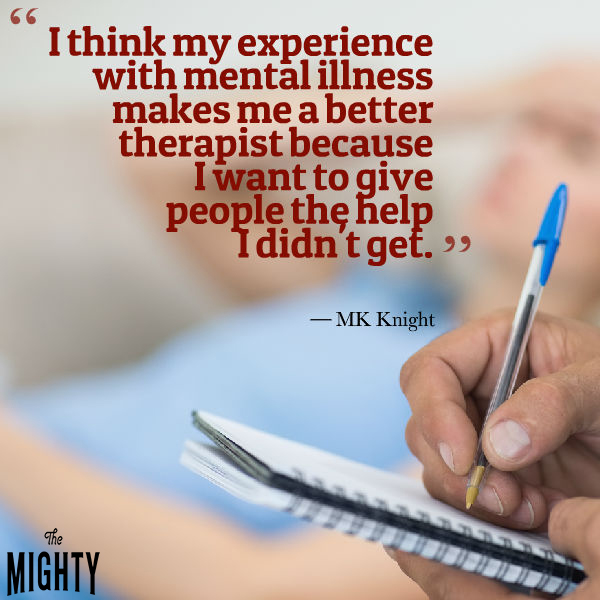
2. “I believe it makes me more empathetic and understanding of others, both people with mental illness and without it. It opens my heart!” — Marlena Davis
3. “I’m more compassionate — in tune with a deeper level of understanding. I know the lies of ‘I’m OK.’ Really? Because you don’t look OK. Your body language is screaming out I’m struggling.” — Sarah Jane Johns
4. “I’ve become more determined. I’m determined to live a life where I accept my illness, but I do not let it define or limit my potential. My illness has challenged me to achieve my goals yet remain in balance within my brain’s needs.” — Jessica Ostergaard
5. “I took the broken woman from the white psychiatric holding room and created from the ruins a person who had a different strength — bravery.” — Sheri Little
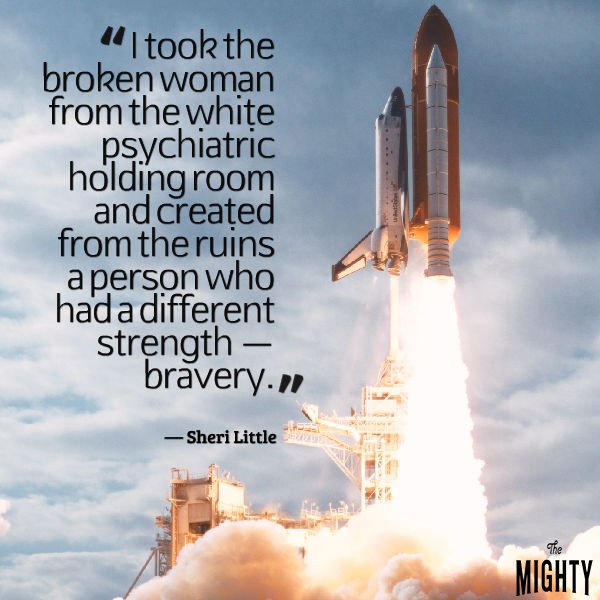
6. “As a student nurse, my experience has allowed me to see that illness is illness. It doesn’t have to wear a label, but deserves the same respect.” — Ginger Giannoni
7. “I’m a lot more empathetic to what others are going through. I’m less likely to jump to a harsh conclusion about someone than I was when I was younger.” — Courtney Keesee
8. “Because of one of my mental illnesses (obsessive compulsive disorder), I’m hyper-aware of my surroundings. Nothing gets by me; I notice everything.” — Nikki Chalker
9. “It has made me more compassionate. I never imagined I would ever be in that dark place that is depression, that I would lose jobs, opportunities, friends, time. I thought I’d be successful at 27. A doctor. A lawyer. A something. Well, thanks, depression… I’m not. But I am compassionate. I am empathic. I’m able to see the good in those who face the darkness because I’ve been there myself. Thanks, depression.” — Phil Rose Sulzen
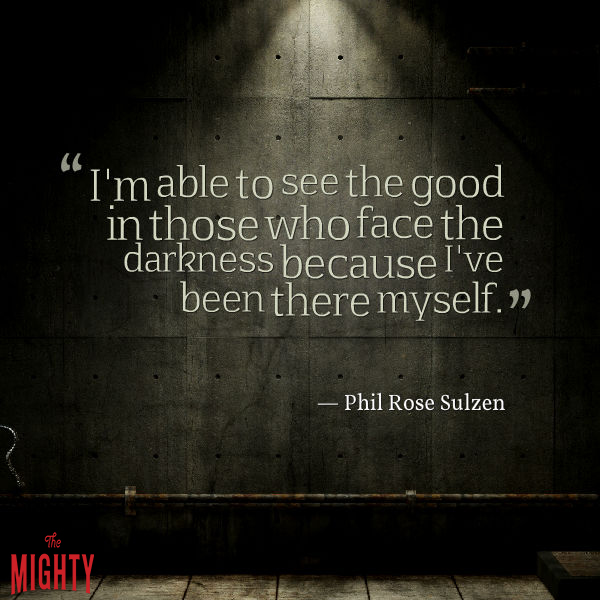
10. “It helps me connect with and understand the young people I work with. Knowing their struggles and having gone through some of them myself, I’m able to point them in the direction of help and support them through that.” — Alana Reid
11. “I find my experiences have helped others who are going through similar situations. I’ve become a resource to a few of my friends who are depressed or now discovering they are bipolar.” — Shannon Trevino
12. “I’ve gotten help from an amazing team, friends and family. I now know I want to give back and help others, too. So I’ve become a mental health advocate and want to major in psychology.” — Arielle Smith
13. “I’ve become my own best advocate because I finally found my voice.” — Brittany Isabella
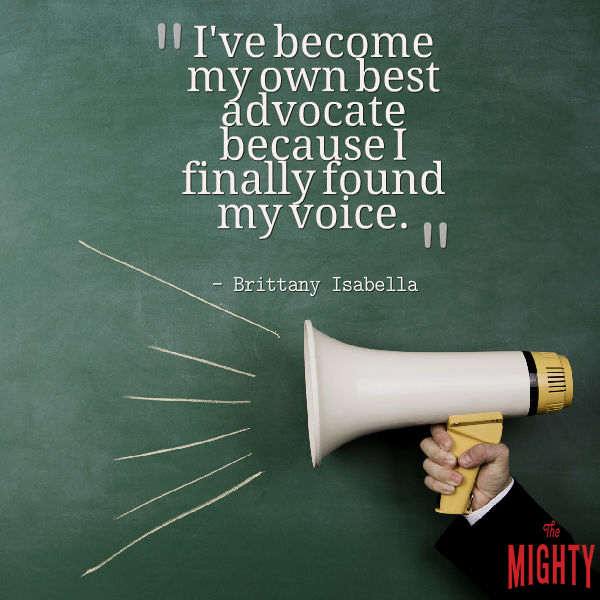
14. “Sometimes it’s impossible for me to get mad at someone because I can recognize the reasons why they did what they did, and I empathize with it!” — Alyse Ruriani
15. “I’ve learned to see myself and my emotions in a positive light. I’ve learned not to judge a person immediately and stop to consider he or she may be fighting invisible battles. — Erin MacNeil
16. “Generalized anxiety disorder makes me prone to overthinking. To overcome this, I learned in high school to set a time limit and mind map the process I’m looking at, then put it away, come back later, and find the best ideas out of all of it to focus on implementing. Now, as a programmer, this same set of tools helps me identify particulars to focus on, avoid over-evaluation and take action.” — Tommie Matherne
17. “I’ve become more open and honest with myself and others. I’m also more open to asking for help if I need it.” — Lucynda Slattery
18. “My depression has shown me I am a warrior. I am strong. I know I can make through anything.” — Kiona Johnson
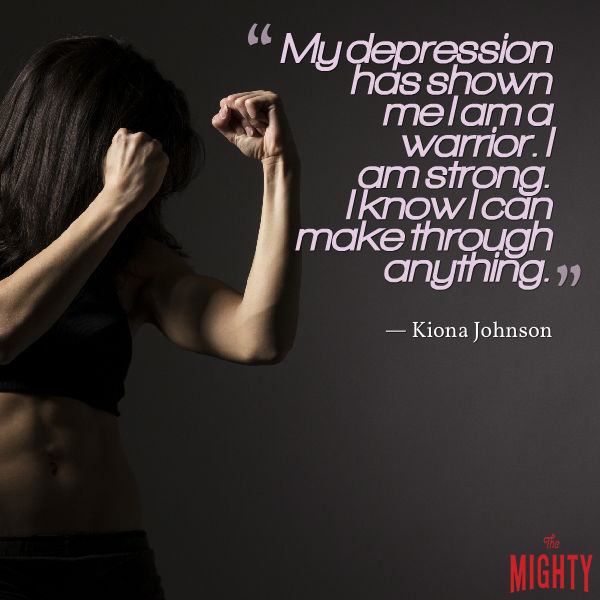
19. “It’s taught me to love myself unconditionally.” — Ruth Martin
20. “Self-perception. I think you learn to be more in tune with your whole body.” — JayCee Morgan
21. “I discovered only I can meet my needs. No one else can do that for me.” — Susan Reed
22. “It’s made me realize life does get better, even if it’s just for a short period of time.” — Abigayle Petty
23. “My depression has heightened my compassion for others. I seem to pick up when someone is having a challenge. It’s easy to see masks of others. Also, I’m a much better listener, open to others if they need an ear.” — Jory Pradjinski
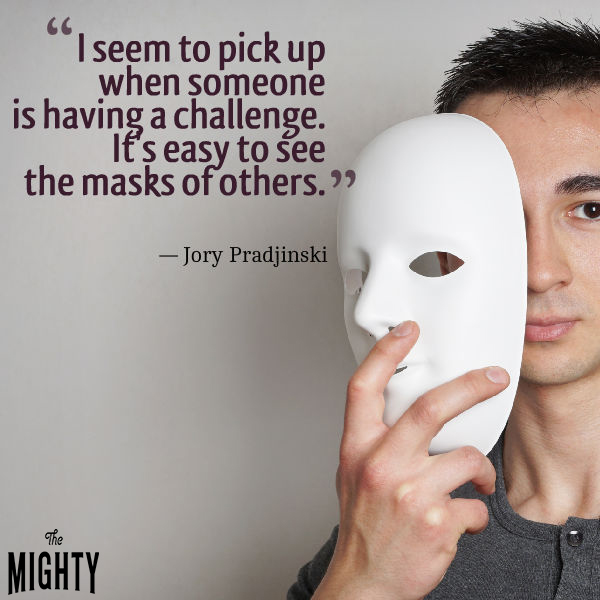
24. “Living with severe depression and anxiety taught me not to take anything for granted.” — Ashley Searcy
25. “Since having my daughter, I’ve learned my depression and anxiety are part of me, but not all of me. I’ve found strength in me to like myself the way I am. I cry if I need to, relax when I have to and smile at others knowing maybe they needed it.” — Kati Kainulainen
26. “I know how to help guide others down the path. I can hold your hand when you get your diagnosis. I won’t judge you when you get sick.” — Katie Pico-Conner
27. “My illness has taught me to value my life for the very first time — to appreciate it for all of its flaws and forked roads. The depths I’ve crawled back from have made me realize this is the only life I get, and I will make it a worthy one, struggles be damned.” — Lyss Trayers
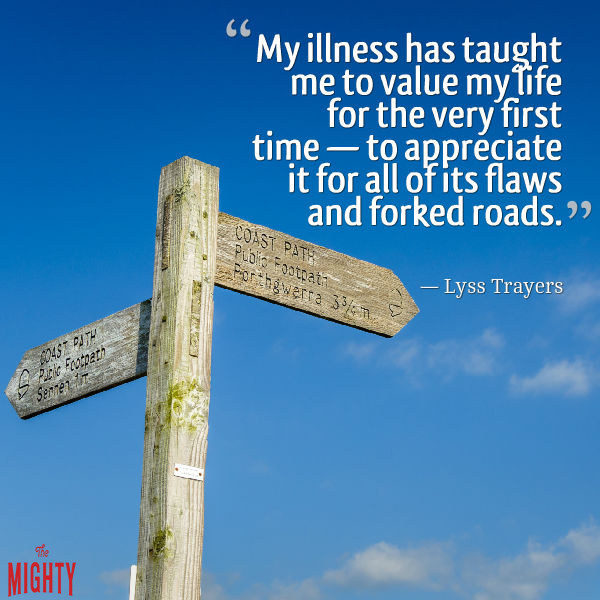
28. “I look back on all the times I was unable to advocate for myself because of severe depression, anxiety, post-traumatic stress disorder — it’s shown me how important it is for people to have someone advocating for them.” — Sarah Faith Gaspar
29. “It helped me to realize my life’s calling — helping kids with behavioral issues learn how to better express themselves.” — Dylan Jonathen Kirchhoff
30. “It has brought my siblings and I closer together since we all suffer with anxiety and/or panic disorder. We can relate to each other and that’s very comforting.” — Crystal Leigh Knippa
31. “Depression and anxiety taught me to prioritize myself and to ask for help when I need it. I didn’t do that until it was almost too late.” — Still Sunflowers: my life with endometriosis
32. “It’s made me realize sometimes the way to comfort people is just to be present.” — Jenna Bagnini
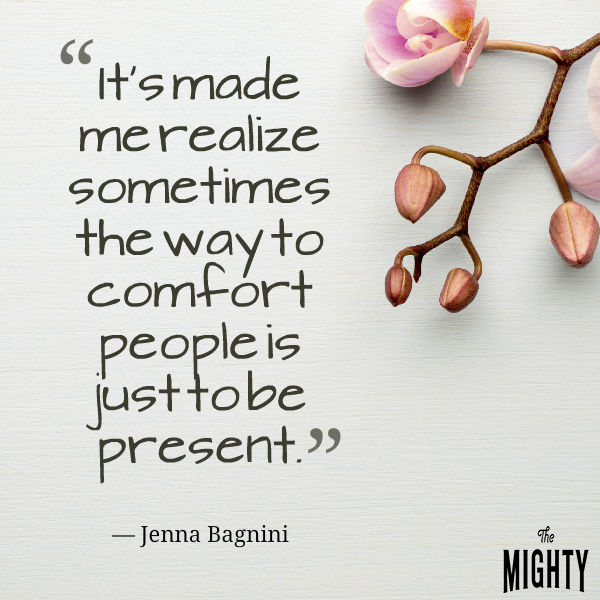
*Answers have been edited and shortened.
